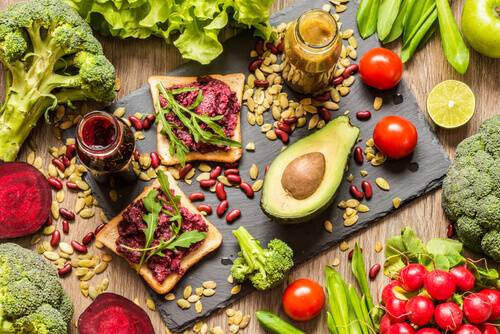
Veganism is commonly misunderstood to be only a change of diets. However, veganism more than anything is a change in lifestyle. It refers to the practice of abstaining completely from the use of animal products, and is an ethical stand against the commodification of meat.
While it may sound simple enough, becoming vegan requires a lot of vigilance in terms of recognizing which products are made without the involvement of animals. Turning vegan can also be a challenge because a person will need to find vegan alternatives to the animal proteins they usually consume. Failure to do so results in the person missing out on essential nutrients, which may lead them to contract diseases.
Since retirement, Neeta’s parents had been dabbling in a lot of new trends and trying out different diets they came across in a bid to hold onto their good health. While Neeta was for the most part supportive of their plans, she often advised them based on her own understanding and urged them to speak to their doctors before they embarked on the newest trend.
Recently, her parents had intimated to her that they were considering turning vegan. Neeta was quite surprised because her parents had always enjoyed gorging on non-vegetarian food items. However, once she heard of their reasons for converting to veganism, she decided to help them prepare for it. Several of her friends had adopted the vegan lifestyle and she connected them to her parents for advice while also using the internet to surf for ways to make her parents lives easier.
Neeta understood that for her parents, who had been non-vegetarians their whole lives, veganism could become a very difficult experience. She impressed upon them the need to stay healthy before trying out anything, and they agreed to her suggestion to take adequate precautions.
Converting to a vegan lifestyle requires taking several safeguards ahead of switching diets entirely. Read on to learn about the factors you should keep in consideration before altering your lifestyle all at once.
1. Finding Alternatives to Essential Nutrients:
Changing to a vegan lifestyle means looking for alternatives to food sources you can no longer consume. For instance, animal foods contain a vital nutrient namely Vitamin B12, which a person will be deprived of once they begin a vegan lifestyle. It is necessary to approach a doctor to learn about healthy alternatives to consuming Vitamin B12 before switching to a vegan diet, in order to not eliminate the essential nutrients from the diet. Vegan diets also contain less iron, so that is another supplement you will need to figure out before switching to a vegan diet.
2. Finding Protein Alternatives:
A non-vegetarian diet comprises of essential proteins, that are extremely beneficial for maintaining a person’s good health. While switching to a vegan diet, it is important to identify new sources of protein to inculcate in the new diet. Several green vegetables are also rich in protein so it’s a good idea to look those up or to approach a dietician to recommend new sources of protein.
3. Don’t Switch to Packaged Foods Alone:
Quite often, people switch to a vegan diet which eliminates animal products but leads to a dependence on packaged foods. This is not healthy in the long run, and can lead to several health issues later on. It is important to identify natural sources for all the nutrients that your previous diet equipped you with, and consume them instead of packaged vegan goods.
4. Avoid Binging on Soy:
Soy is one of the best alternatives to animal products, in terms of protein content. However, it is not advisable to inculcate too much soy in your everyday diet. Read labels carefully to understand how much soy you are consuming, and to maintain moderation.
5. Transition Gradually:
Changing to a vegan lifestyle overnight is a very difficult proposition. Swapping your entire diet for a whole new kind will take time, and it is best to do it slowly and adjust to the changes in a phased manner. Begin by adding more plant-based items to your regular diet and phasing out the animal products bit by bit, instead of eliminating them all at once. Also make sure to begin consuming supplements before pushing an entire food group off your plate.
6. Read Food Labels, Carefully:
If you have always been a health-conscious consumer, this part will be easy. As a new vegan, avowed to eliminate animal products from your diet, it is essential to read food labels and understand what you are consuming. Many products will not overtly suggest that they are non-vegetarian, but they can be derived from meat products. As a vegan consumer, it is up to you to learn and research which products are primarily derived from meat and avoid those.
Converting to veganism cannot happen all at once, and requires a lot of patience and information to be correctly implemented in your diet. It is important to maintain good health despite changing diets and this requires quite a bit of research.
Neeta’s parents were more than willing to let her help them research the considerations for a vegan diet, which they agree helped them do it in a more disciplined and healthy manner. As a result, their conversion was also smoother than most and they did not suffer from any ill-effects while transitioning to a vegan diet. They took their own precautions as well, by opting for critical illness insurance, which allowed them to breathe easy knowing that any potential illnesses were taken care of.


Comments
s